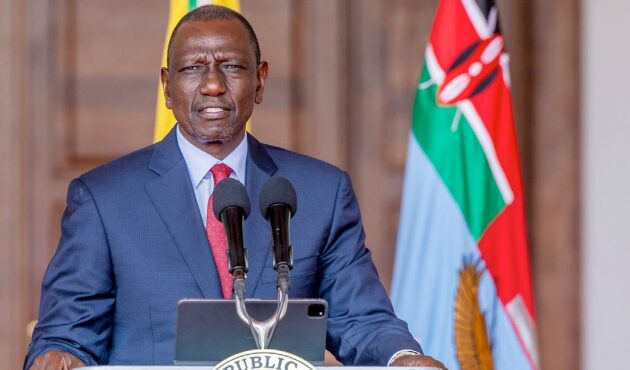President Ruto reverts to familiar strategy to win support

President William Ruto has gone back to a familiar strategy to regain support following Gen Z’s recent protests.
The President, an astute political player, is now making pledges and offering goodies, even under scrutiny over unfulfilled promises such as the compensation of victims of police brutality during the youth-led demonstrations, mandatory retirement of all civil servants who have attained 60 years and cut down on the number of parastatals by 50%.
Youth-led nationwide protests created the biggest crisis of his two-year presidency, as demonstrators demanded better governance and his resignation. In the wake of the protests, President Ruto announced several austerity measures, which he committed to implementing immediately and aligning government expenditures with the budgetary implications of the withdrawal of the Finance Bill, 2024.
Soon after dissolving his cabinet, he reiterated his commitment to steering the country towards the unity of all, promising to tackle corruption in government, constituting an all-inclusive cabinet, and firmly fighting corruption as part of radical reforms in his government.
He announced that he was pushing for amendments to anti-graft law to ensure all corruption cases are cleared within six months.
“I will be proposing amendments to the Evidence Act, the Criminal Procedure Code, among other necessary legislative amendments to all statutes relating to corruption, to expedite the investigation and prosecution of corruption and economic crimes cases and provide for their conclusion within six months,” he said.
On compensation of police brutality victims, the government has remained silent.
“It is with deep regret that I have to say that many Kenyans lost their lives, and others have been seriously injured as a result of disturbances occasioned by lawless activity during the protests. This is not how and where our democracy should proceed, and we must do all we can to ensure that this does not occur again in future. The government will provide support to the families of those citizens who lost their loved ones,” President Ruto said on July 24 while announcing the second batch of the Cabinet.
Since then, the president has held public engagement meetings in the form of town hall meetings and the usual regional development/working tours, where he has explained his agenda. Recently, the head of state toured the Mt. Kenya region and Gusiiland, where he made some promises and offered goodies.
While in Kirinyaga over the weekend, President Ruto announced that a KSh500 million industrial and aggregation park will be established in the county. The project is to be jointly funded by the state and the county government.
Additionally, the President said 7,000 households will be connected to electricity at a cost of KSh500 million. He further added that KSh900 million will be used to build 11 markets in the country to spur economic growth.
While on a three-day working tour earlier in the week in Gusiiland, President Ruto pledged to construct a university at Kiabonyoru in Nyamira. He also promised government support for university students in funding their education despite glaring gaps in its ability to support all students in higher education institutions.
On the new project, the President said he had decided to donate KSh500 million for the construction of the university after consulting with the area Member of Parliament (MP). “Let us continue to build a university here at Kiabonyoru. We have decided that the project should come to Nyamira because you have enough land,” he said.
On funding the students, the President expressed confidence in the KSh82 billion allocation, which he said would be sufficient to finance scholarships, grants, and loans for students in higher education institutions.
A report tabled in Parliament about higher education detailed a deficit of up to KSh48 billion needed for the three higher education funding policies. The Ministry of Education requires at least KSh30 billion for this financial year to cover scholarships, grants, and loans.
The report shows that of the KS13 billion required for scholarships, the allocated KSh4.3 billion can only support 32% of the new students expected to join universities, leaving 73,793 students in financial limbo. And for the continuing students, the Higher Education Loans Board (HELB) is grappling with a KSh7 billion deficit, leaving 61,052 students without funding in the current (2024/2025) financial year.
HELB was recently allocated KSh31 billion in the ratified supplementary appropriation bill, and it remains to be seen how the government will manage the growing anxiety over the financial distress looming over various public universities.
The President has also promised to cut government spending and additional borrowing in roughly equal measures to fill the budget deficit of about KSh177 billion in the current financial year.

